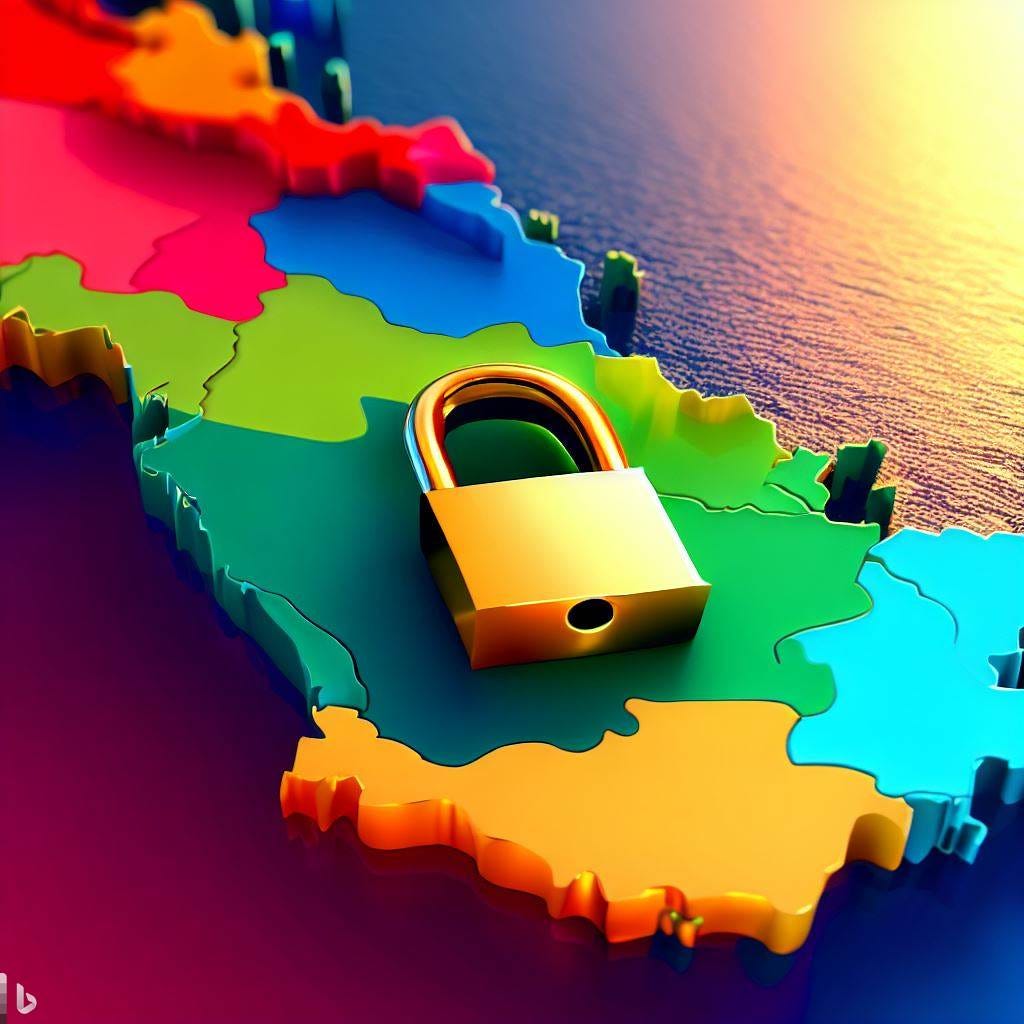Breaking News: ChatGPT Suspended in Italy
OpenAI shuts down service to avoid fines following government request
The Italian Data Protection Authority (known colloquially as Garante and GDPD) issued a temporary suspension order for ChatGPT in Italy.
The Authority claims that ChatGPT illegally collects personally identifiable information to train OpenAI’s AI models and does not adequately screen for underage users.
The action is related to OpenAI’s security vulnerability that emerged earlier this month, but GDPD appears to also have concerns about hallucinations.
OpenAI has 20 days to respond to the allegations and indicate what steps it has taken to comply. Fines could rise as high as €20 Million or 4% of annual revenue.
OpenAI has suspended ChatGPT access for Italian users
Italian search trends for ChatGPT continue to rise and rival other cultural topics (charts). Many Italian users are expressing disappointment with the regulatory action.
The Italian Data Protection Authority (Garante per la protezione dei dati personali) today called for the suspension of ChatGPT use in Italy due to what it characterizes as the unlawful collection of personal data and the absence of systems to verify the age of minors. An official translation of the announcement says:
Italian SA highlights that no information is provided to users and data subjects whose data are collected by Open AI; more importantly, there appears to be no legal basis underpinning the massive collection and processing of personal data in order to 'train' the algorithms on which the platform relies.
The Cost of Security Vulnerabilities
The timing of this order is not coincidental. GDPD’s concerns go beyond the security vulnerability that OpenAI patched last week. However, the incident from March 20th was specifically mentioned in the announcement.
In addition, the Authority said that it carried out checks on ChatGPT and found that the output “does not always match factual circumstances, so that inaccurate personal data are processed.” This suggests that the regulators may view the presence of “hallucinations” as problematic. The announcement also mentioned that the lack of an age verification filter created a risk for users under 13.
OpenAI must report to GDPD within 20 days the steps it has taken to implement new data and consumer protection features. It could face a fine of up to €20 million or 4% of annual revenue.
Synthedia’s coverage of ChatGPT’s security issue suggested OpenAI’s lack of experience with consumer-facing applications may have contributed to the issue. A full-stack solution with a consumer-facing UI has a larger cybersecurity attack surface than a service accessed via API by other applications. The types of attacks are also different.
Granted, these same concerns could be raised about OpenAI’s GPT model Playground and DALL-E, but those services were not mentioned. OpenAI’s statements suggest the security vulnerability did not impact those services.
The move by Italian authorities will surely not be the last. Every EU member nation could levy the exact same arguments. Beyond the new application security challenges, OpenAI is learning that consumer-facing applications face different regulatory scrutiny than back-end data services.
Non più ChatGPT
According to Reuters, “OpenAI said it has disabled ChatGPT for users in Italy at the request of the Garante.” The company told Reuters:
"We actively work to reduce personal data in training our AI systems like ChatGPT because we want our AI to learn about the world, not about private individuals," OpenAI added…
The chatbot is also unavailable in mainland China, Hong Kong, Iran and Russia and parts of Africa where residents cannot create OpenAI accounts.
Sam Altman, OpenAI’s CEO, took to Twitter to confirm the company’s compliance with the Italian order and said he believes the company is following applicable privacy laws.

Of course, not all Italians are enthusiastic about this development.


You might be thinking that Twitter is not representative of Italy. Here is a snapshot of Google search trends for ChatGPT in Italy since the service launched on November 30, 2022. You can see that searches have risen consistently.
However, this doesn’t necessarily tell you how popular the ChatGPT search is in Italy. It just shows that the search frequency is rising. Comparing these results to more general terms can show how broad the interest may be.
You can see that searches for “il papa,” Italian for Pope, spiked on December 31, 2022, when the death of former Pope Benedict was announced. Since January 7, 2023, searches for ChatGPT in Italy have significantly outpaced those for the pope.
Bing Chat tells me the most popular football team in Italy is Juventus, with 8.7 million fans. It far outpaces ChatGPT for search queries for most of the past four months, but the gap has narrowed over the past two weeks.
A Test of Generative AI’s Staying Power
This will be a test. You may recall that Uber would ask drivers and riders to protest or call their city council when there was a threat of onerous rules in favor of taxi services or penalizing ride-sharing services. The company even ceased operations in several cities until more favorable regulations were instituted.
OpenAI is not like Uber, which had a pugnacious culture. However, the request to cease operating will have the same effect. Will Italian citizens rebel at the removal of ChatGPT? If they do, this will be a powerful signal of user loyalty. It will also be a test of resolve for Italian politicians and regulators. This outcome could make other EU countries reluctant to take similar steps against the company.
If Italian citizens do not react, then OpenAI will have a market signal that its customers view ChatGPT as a novelty. Easy come. Easy go. It will also signal to other EU countries that there is little downside risk and potential political gain for going after OpenAI.
Then again, a third outcome may come to pass. VPN subscriptions in Italy may spike next week. This is a test case worth watching!
Just in case you are wondering. Bing Chat, which is based on OpenAI’s GPT-4 model, is not available in Italy. Bing Chat told me this evening it won’t be available in Italy until OpenAI resolves this issue.













Always on point, Bret, I was just thinking how long this news would reach U.S.
IMHO, I would say that the VPN option is the more probable one. There are tons of of reasons why Italians should protest, and we don't, for many reasons that I won't address here. I hope to turn out to be wrong! There are a lot of sad and disappointed comments on social media in these hours, stating more or less the same concept: you don't govern with fear.
Banning, limiting, preventing without knowing what your are talking about is not a smart move.
Let's see the bright side:
1. it's time to sit down at a round table and talk about regulations globally, maybe the emerging EU AI Act could be a starting point,
2. this ban sets a precedent, and huge opportunity for authorities & companies to create open source models, as well.